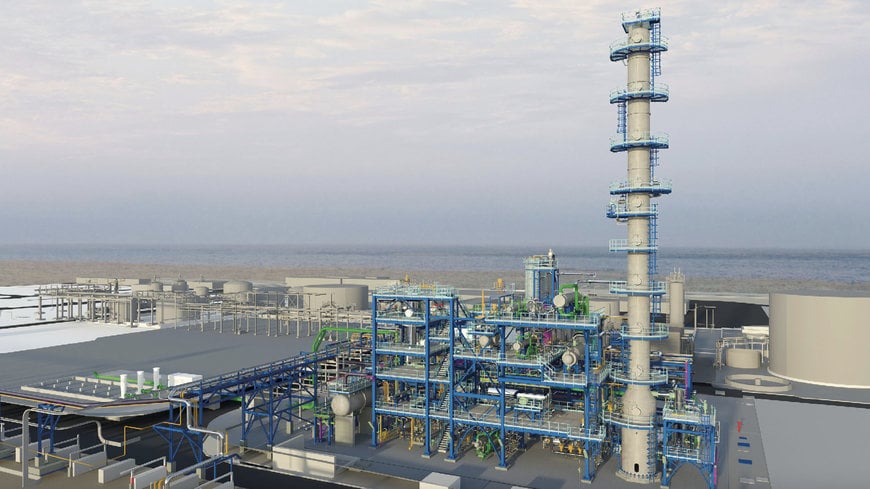www.industryemea.com
10
'24
Written on Modified on
CEPSA STARTS BUILDING SPAIN'S FIRST CHEMICAL PLANT FOR HYDROALCOHOLIC GEL BASE PRODUCTION
It will be the first plant of its kind in Spain to use green hydrogen and capable of replacing fossil fuels with sustainable alternatives.
www.cepsa.com

Cepsa continues to develop and diversify its chemicals business by starting the construction of a new isopropyl alcohol (IPA) plant, the first of its kind in Spain. This product is used not only in hydroalcoholic gels, but also in household and industrial cleaning products.
The new IPA plant will be located in Palos de la Frontera (Huelva) and will be the first plant of its kind in Spain to use green hydrogen and capable to replace fossil-based raw materials in the production of isopropyl alcohol with sustainable alternatives. This will expand Cepsa Química's range of more sustainable products, in line with Cepsa's Positive Motion energy transition strategy.
This new plant will guarantee our country consistent and high-quality access to this essential product, which is critical to sectors such as the medical and pharmaceutical industries. It will also reduce our dependence on isopropyl alcohol-based disinfectants from third countries.
Isopropyl alcohol is also used as a solvent in the manufacturing of paints, coatings, and printing inks, as well as an intermediate in the production of key ingredients in the pharmaceutical, cosmetic, and agrochemical industries.
Synergies with the Andalusian Green Hydrogen Valley
Cepsa's chemical business – and the new IPA plant – will benefit from its proximity to the Andalusian Green Hydrogen Valley and the largest second-generation biofuels plant that Cepsa is building, as part of a joint venture with Bio-Oils, next to the La Rábida Energy Park in Huelva. The location of the new facility adjacent to the chemical plant and the La Rábida Energy Park will allow the three facilities to be highly integrated, creating strong industrial and economic synergies. In this regard, it is worth noting that the supply of acetone required for IPA production will come from Cepsa's chemical plant, thus increasing its added value. In addition, the hydrogen (raw material) will be provided by the Andalusian Green Hydrogen Valley.
From the start, the plant will be able to use both renewable energy and raw materials, in line with Cepsa's commitments and the development of its "Positive Motion" strategy. The energy supply (thermal and electrical) required for IPA production is thus planned to come from renewable sources.
The construction of this new plant will strengthen the new chemical industry in Spain and allow Cepsa to diversify its product portfolio, positioning the company as a leader in the Iberian Peninsula market and making it one of the main producers and references of isopropyl alcohol in the European Union.
www.cepsa.com

